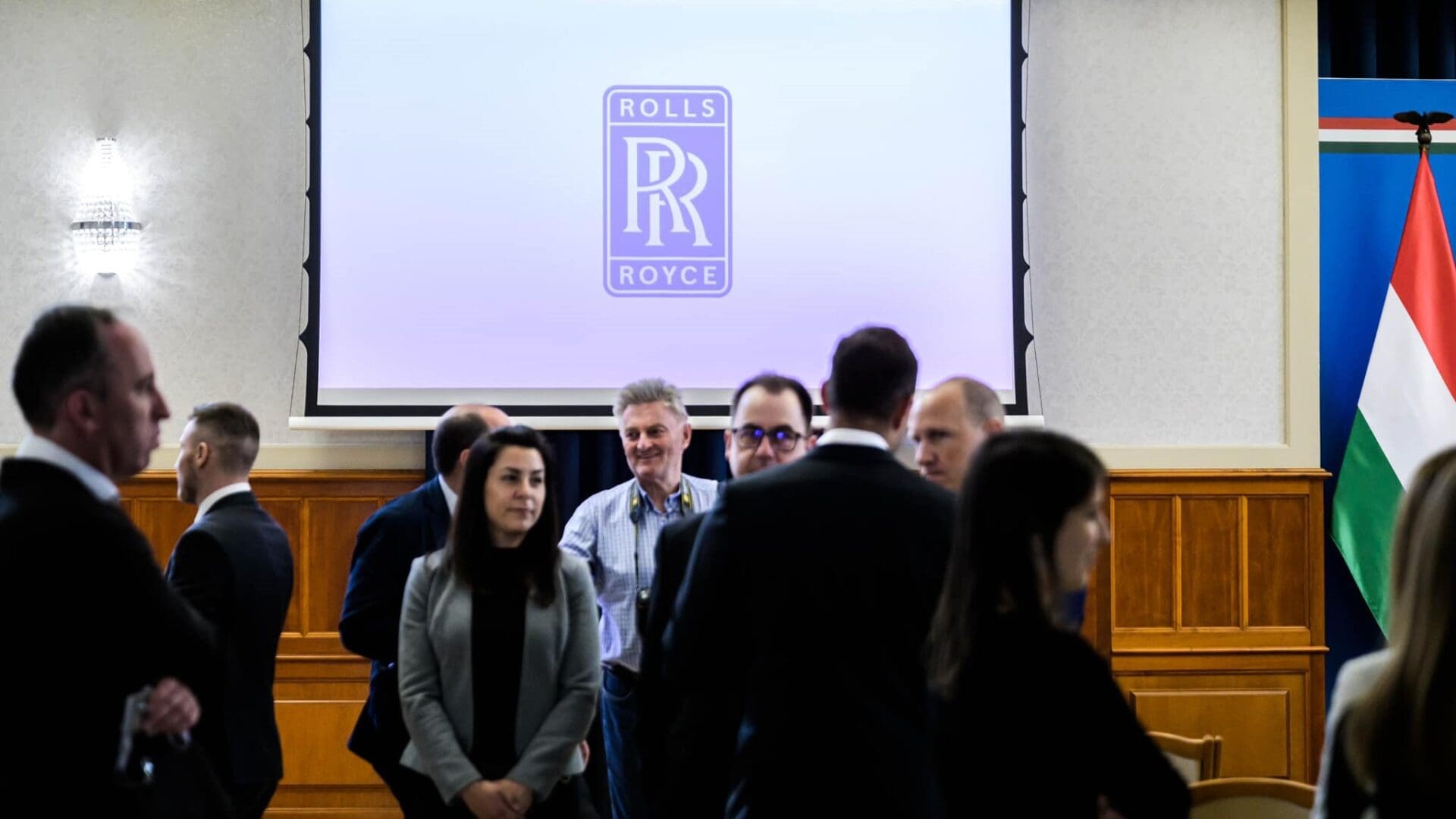British Rolls-Royce will bring the development of exciting, future-oriented tools to Hungary, allowing Hungarian engineers to participate in work that still belongs to the realm of science fiction today, Minister of Foreign Affairs and Trade Péter Szijjártó stated on Monday, 12 June.
During the announcement of Rolls-Royce’s new research and development investment in the building of the MFAT in Budapest, the minister highlighted that the company will design the tools necessary for the transportation of the future in its Budapest centre, including components for hybrid and electric aircraft and systems based on high-speed generators.
‘These are components that still fall into the realm of incredibility today, but just a few years ago, we thought of self-driving cars in a similar way as science fiction, just as electric vehicles may have seemed too distant a few years ago,’ he said. ‘There is extremely intense international competition for each investment, especially when we talk about investments that develop future technologies, represent a high level of technology, and have high added value,’ he added.‘
The project, valued at 6.9 billion Hungarian forints, was supported by the government with approximately 1.7 billion forints, contributing to the creation of twenty engineering jobs in addition to the current one hundred twenty.

In his speech, Péter Szijjártó also mentioned the extraordinary difficulties of recent years, reminding that the European economy ‘stumbles from crisis to crisis,’ and in the current situation, the most important task for the Hungarian administration is to maintain the growth of the gross domestic product (GDP) and preserve jobs. He emphasised that instead of austerity measures and assistance, the Hungarian government has encouraged investments, going against the mainstream, and these response measures have proven to be successful. He underscored that even in the ‘black year’ of 2022, the Hungarian economy scored a hat trick: secured record-breaking investments, exports, and employment levels. Péter Szijjártó added that the government has not only managed to keep the economy on a growth trajectory but also
registered the sixth-largest GDP growth since the regime change in 2022.
The minister stressed that the Hungarian government has been working on a substantial transformation of the economy. After the results of strong re-industrialisation, the goal now is to create an economy based on development with higher added value. He reminded that the significant growth of research and development capacities in the country is due, among other things, to low tax rates, exceptional political stability, and the reorganisation of higher education. He opined that the expansion of research and development investments also entails the expansion of production capacities. ‘The interaction between quantity and quality is clear here. Where new era technologies are developed, there is a good chance that the production capacities of the new era will also emerge,’ he said.
In this regard, he recalled that research and development expenditures in the Hungarian budget exceeded one trillion forints, which is already more than one per cent of the GDP. ‘The number of research institutions in Hungary is now over four thousand, and the most important corporate sources for research and development have increased by 18 per cent, while state budget expenditures have been raised by 27 per cent,’ the minister underscored.
British companies have carried out nearly $6 billion worth of investments in Hungary, employing over 50,000 people today. The value of bilateral trade between the UK and Hungary has already increased by over twenty per cent since the beginning of this year.
Related articles:








